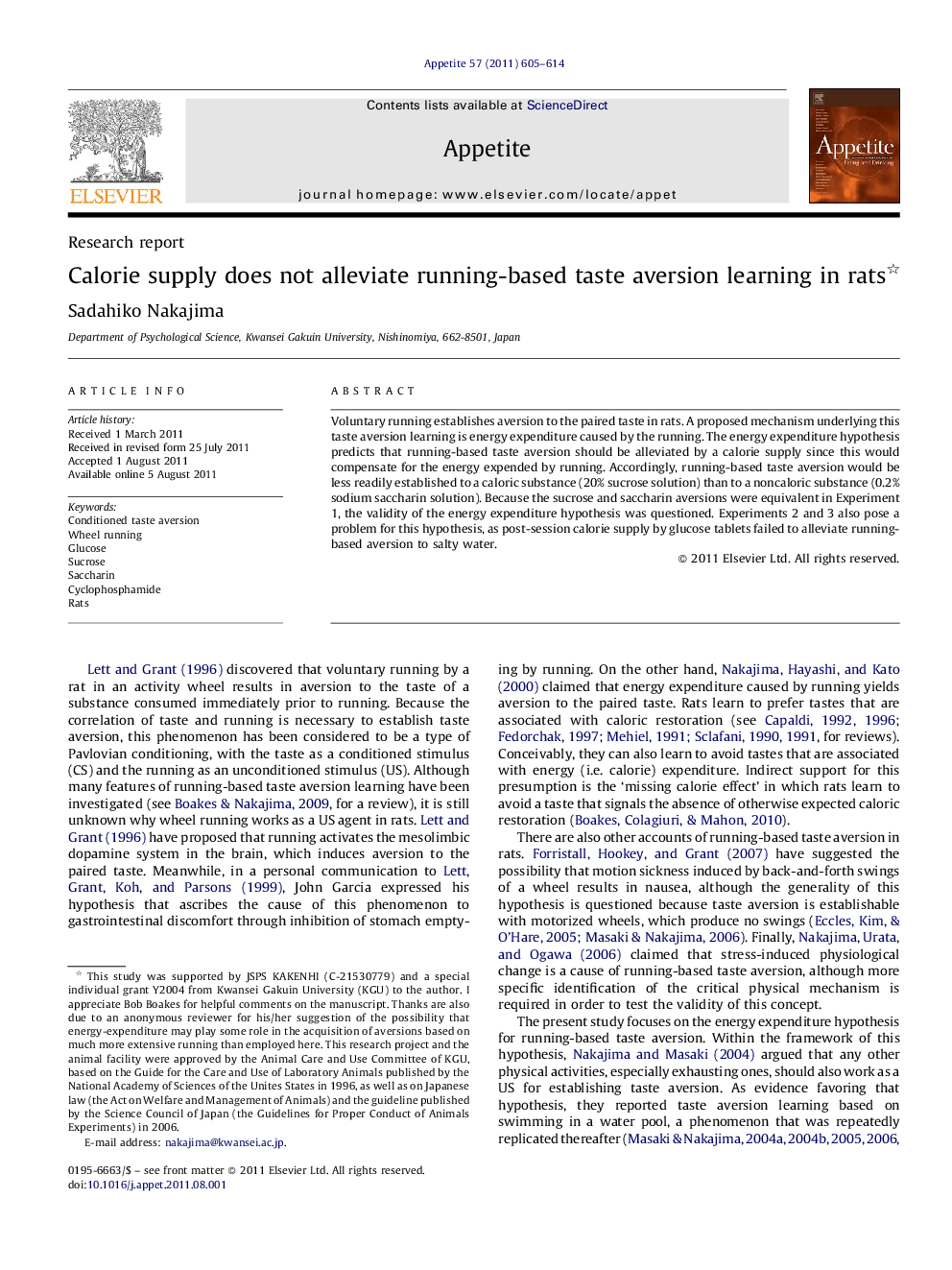| Article ID | Journal | Published Year | Pages | File Type |
|---|---|---|---|---|
| 940592 | Appetite | 2011 | 10 Pages |
Voluntary running establishes aversion to the paired taste in rats. A proposed mechanism underlying this taste aversion learning is energy expenditure caused by the running. The energy expenditure hypothesis predicts that running-based taste aversion should be alleviated by a calorie supply since this would compensate for the energy expended by running. Accordingly, running-based taste aversion would be less readily established to a caloric substance (20% sucrose solution) than to a noncaloric substance (0.2% sodium saccharin solution). Because the sucrose and saccharin aversions were equivalent in Experiment 1, the validity of the energy expenditure hypothesis was questioned. Experiments 2 and 3 also pose a problem for this hypothesis, as post-session calorie supply by glucose tablets failed to alleviate running-based aversion to salty water.
► Running in an activity wheel causes aversion to the paired taste in rats. ► Calorie supply does not alleviate such running-based taste aversion. ► Thus, energy expenditure should not be critical factor for this learning.
